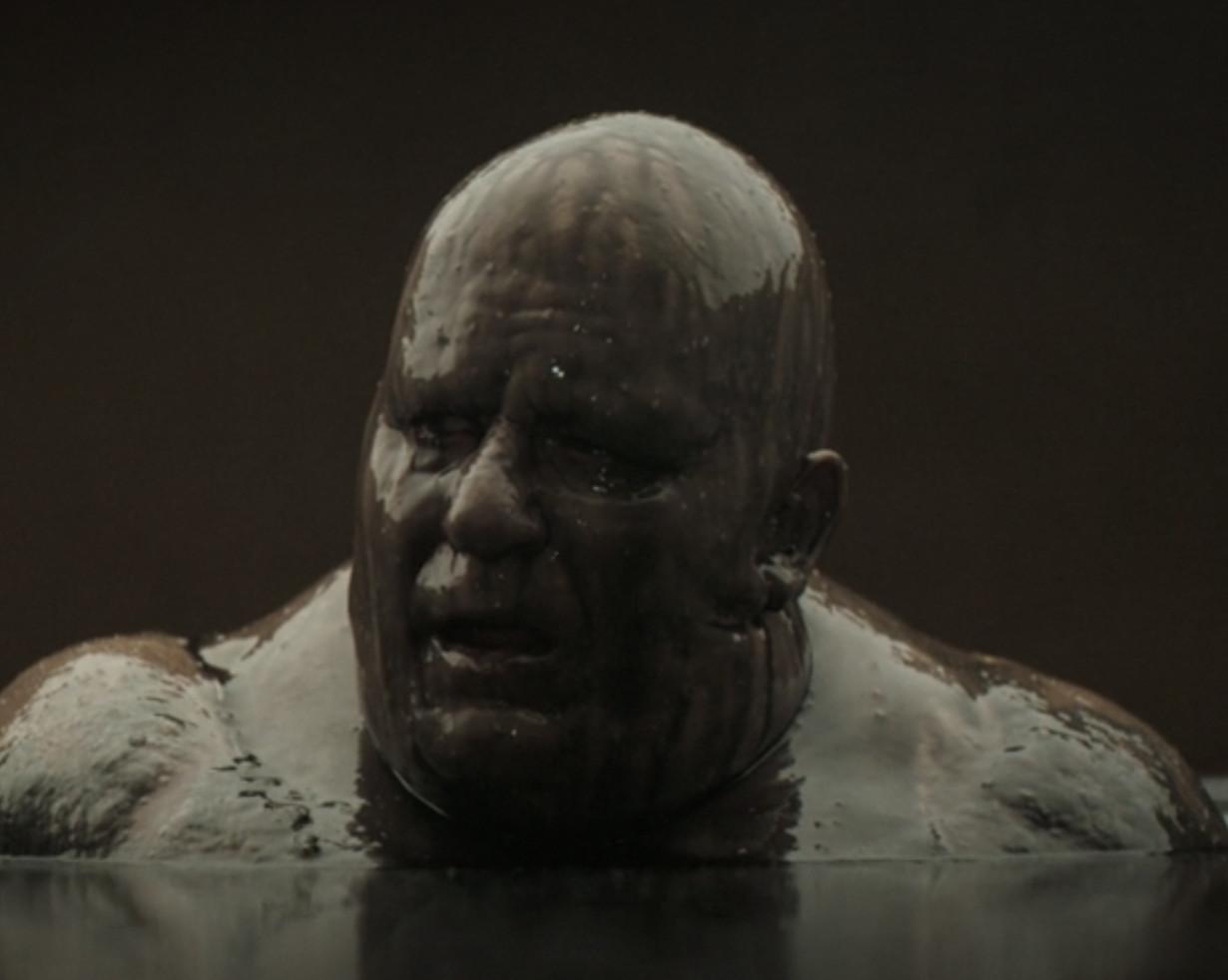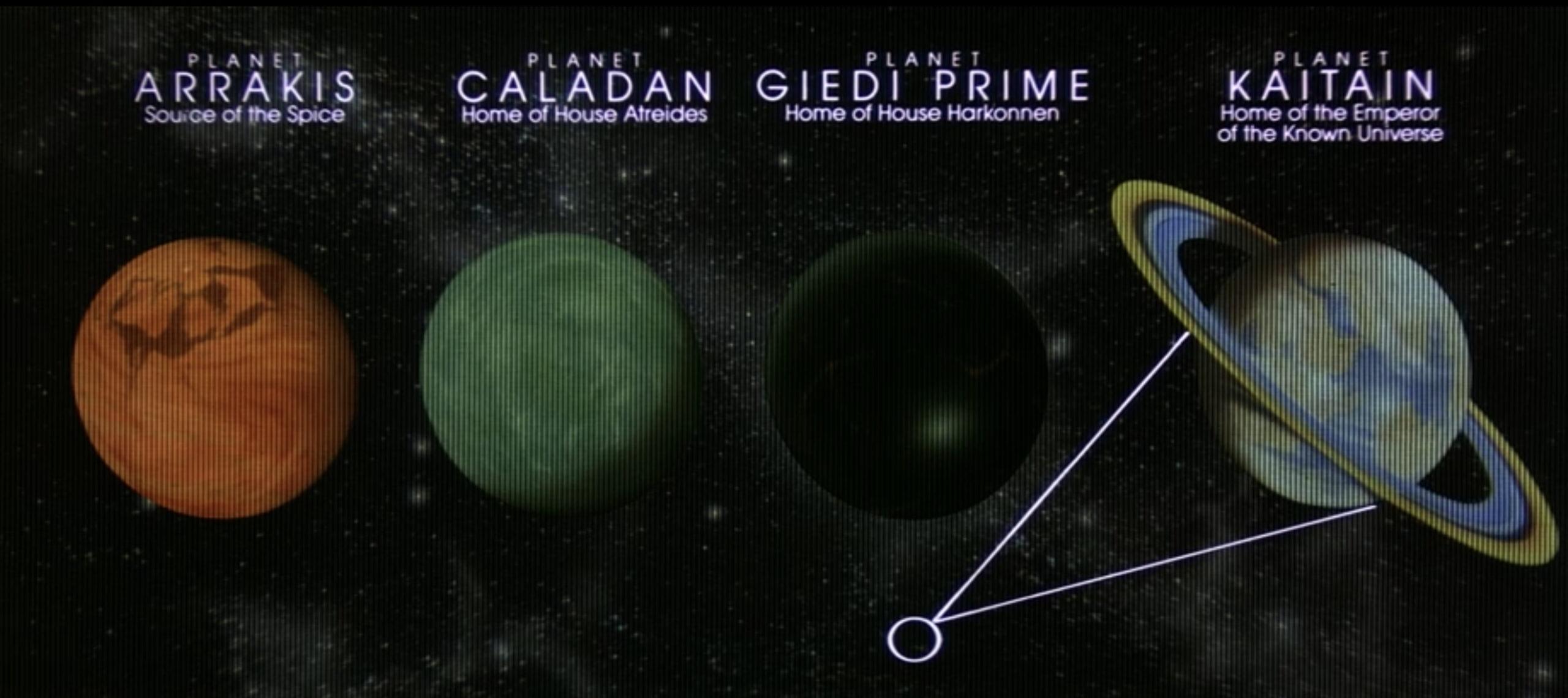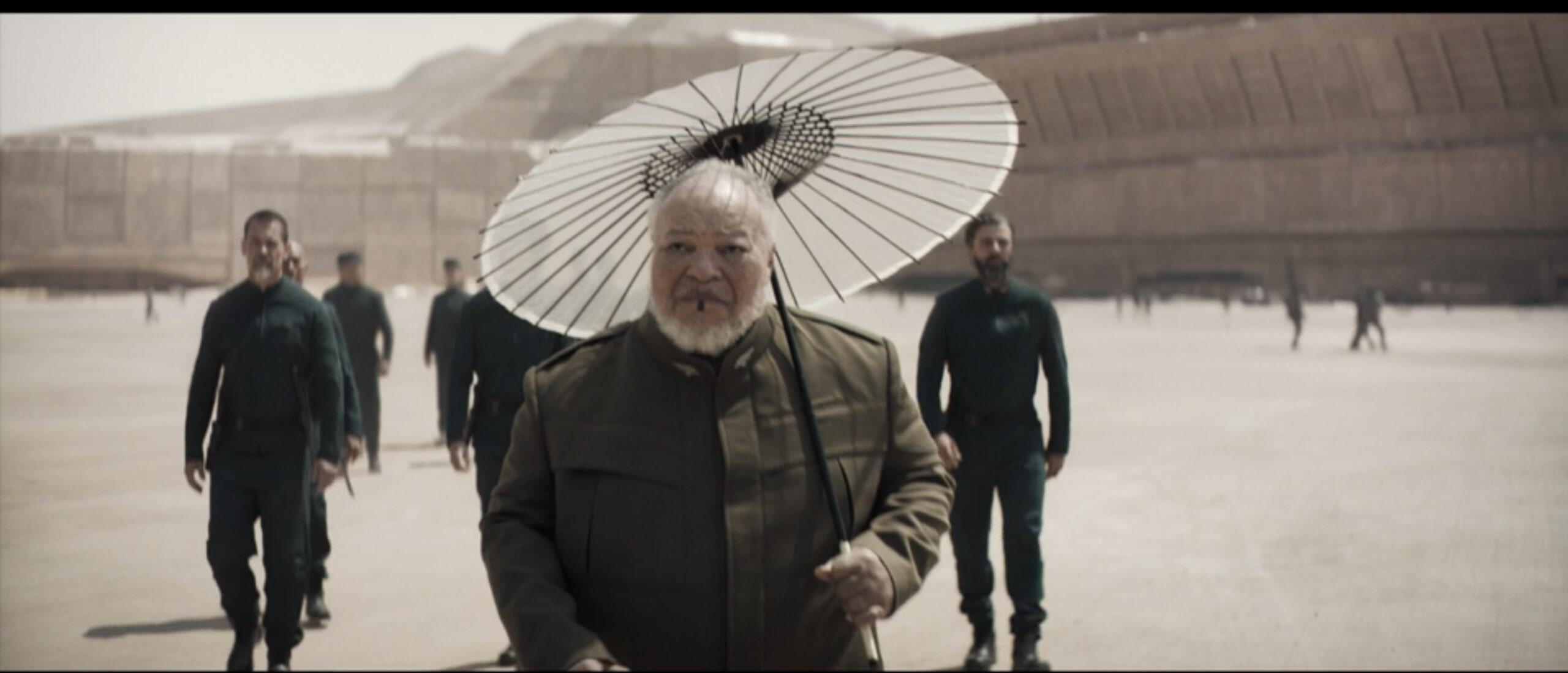After some delays and plenty of hype, Dune finally hit theaters (and HBO Max) on Friday. Frank Herbert’s iconic source material has long been described as impossible to adapt, so the biggest question now is: Did director Denis Villeneuve pull it off? We also have several other smaller questions to ask.
1. What is your tweet-length review of Dune?
Megan Schuster: An absolute spectacle of a movie befitting an absolute spectacle of a book. Also, Hans Zimmer still fucking rips.
Kjerstin Johnson: Aside from the whole white-messiah narrative underpinning the entire story, which we don’t still need to be doing in 2021, a pretty good flick!
Jonathan Tjarks: This movie is all about the vibes. The good news is the vibes are very strong.
2. What was the best moment of the film?
Schuster: There are a lot of softer moments I could choose here: Leto and Jessica’s every interaction; Paul’s sepia-tinted visions of Chani; pretty much every scene with Dr. Liet Kynes (played wonderfully by Sharon Duncan-Brewster); Paul’s passing of his Bene Gesserit test.
But I’m gonna be an action-movie bro for a second and say the FREAKING SANDWORMS!
Johnson: The sandworm scenes were great, and the sandworm wasn’t even the best part—watching people’s feet begin to sink beneath the sand was viscerally terrifying.
McAtee: Paul and Jessica in the tent, when Paul is grappling with his father’s death, his (potential) role as the Kwisatz Haderach, and an onslaught of visions caused by all the spice in the sand around him. It’s perhaps the most human moment in the story, and Timothée Chalamet and Rebecca Ferguson convey so much with their acting.
Tjarks: Any of the set pieces involving massive numbers of people. Everything in Dune feels epic in a way very few movies do now.
Gruttadaro: The Harkonnen’s surprise attack on Arrakis is an incredible combination of tension, horror, and presentation. The number of directors who could pull this off on a scale this huge can probably be counted on one hand.
Herman: All the knife fights! I applaud Frank Herbert for his foresight on making laser attacks largely impossible without causing a nuclear explosion. Energy shields and the hand-to-hand combat they necessitate are two of the many cinematic concepts that make a Dune adaptation worth all that tricky exposition, and Villeneuve makes the most of them.
3. What was your least favorite part of the movie?
McAtee: BAGPIPES?!?!?!?
Gruttadaro: When Oscar Isaac’s beard was no longer on screen.
Johnson: In the 1984 version of Dune, there is a small pug that is passed around from Paul Atreides to the Duke Atreides to Gurney Halleck (Josh Brolin’s character in the 2021 version), who for some reason is clutching it as he battles the Harkonnen. There was no pug in this version.
Herman: Paul and Jessica sneaking peeks at each other while changing. I know Game of Thrones made epic fantasy cool, but did it have to take incest mainstream along with it?
Schuster: Stellan Skarsgard is forever ruined for me.

4. Book readers: How ya feeling?
McAtee: There are a lot of plotlines, characters, details, and scenes from the book that I would have liked to have seen on screen, but overall the movie nailed so many things that felt like they’d be impossible to get right. I’m very happy.
Tjarks: It’s a very faithful adaptation. But that also raises the question of why they made the movie in the first place if they didn’t have anything new to say about the story.
Schuster: Surprisingly good! Denis Villeneuve has been very open about his love for the source material (he told Wired earlier this year that, “from an environmental point of view and religious point of view [the book] stayed with me through the years, haunted me”) but even when you love something like Dune, translating that to the screen seems nearly impossible. Parts of the book were definitely left on the cutting room floor: Paul crying over the body of the first man he ever killed, the Atreides’s treacherous first dinner party on Arrakis, etc. But overall, the themes of the movie felt, if not as big as those of the book, at least close. Which is really all you could ask for.
5. Non-book readers: Were you able to keep up?
Johnson: Honestly, if I hadn’t seen the David Lynch version—which, in addition to evil space Sting and the aforementioned pug, had helpful planetary diagrams—I think I would have struggled.

Herman: I’m somewhere between book reader and non; I’ve never made it more than 20 pages into Herbert’s original novel, but I’ve seen the David Lynch adaptation and watched enough explainer TikToks to have a vague idea of what’s going on. That said, I instantly appreciated Villeneuve’s gutsy choice to take on only the first half of the book, even without a guaranteed Part 2. The story itself has more room to breathe, of course, but there’s also a bonus: The movie doesn’t just follow the same dreary three-act structure we’ve come to expect from every blockbuster. There’s no CGI car crash that sucks up the entire last hour, nor a rushed conclusion that feels unearned. Some may dislike the lack of closure, but I loved how Dune moves at its own pace.
Gruttadaro: The movie mostly handles Dune’s exposition (there is a lot of it and it is heavy) seamlessly; the guide videos Paul watches are a nice trick. But even more importantly, it’s so well-made and gripping that you wanna go along for the ride even if you don’t exactly know what a Sardaukar is.
6. Who (or what) is the low-key MVP of this movie?
Gruttadaro: The Bene Gesserit run this shit. Which means Charlotte Rampling runs this shit. Which tracks.
Tjarks: Jason Momoa has so much charisma that it’s almost impossible not to think that he should be the star of the movie.
Schuster: The CGI budget. Seriously: As much as I adore Villeneuve, it felt like he went into this movie asking, “How many gigantic spaceships can I make rise from supremely weird places?” and he came out with the answer, “The limit does not exist.”
McAtee: The production design, costumes, makeup, score, and other technical elements of the film. There were some CGI hiccups (Paul’s vision of his jihad was bad) but Dune really captured both the sense of scale and almost-alien otherworldliness that it needed to. The transformation of Stellan Skarsgard as the Baron was especially remarkable.
Herman: A two-way tie between cinematographer Greig Fraser and production designer Patrice Vermette. Dune itself is a titanic work of world-building, and Villeneuve needs something to fill up those wide shots where the actors take up only a fraction of the frame. The cast is great, but more than any performance, it’s the vibe I’m still thinking about.
7. Finish the sentence: “As Paul Atreides, Timothée Chalamet was …”
Johnson: … serviceable!
McAtee: … fine. Most of Paul’s best character development happens in the second half of the book, so if it felt like Chalamet didn’t really do much in this film, that’s why.
Gruttadaro: … perfectly moody and weird—he might as well have been sitting at a coffee shop reading Howard Zinn—and just convincing enough with a knife.
Tjarks: I will say, he did a good job of playing a whiny teenager trying to figure out who he is and what he wants to do with his life.
Herman: … just the right combo of twerpy teen and mysterious demigod. Of course a young movie star can relate to having power and fame before he can handle it!
Schuster: … solid. It’s hard to judge just yet, but this Paul certainly has the petulant teenness I wanted, and much like his character, I expect Timmy will grow into the rest.
8. Who had the best intergalactic space outfit?
Tjarks: The Harkonnens are what you look like after six months of chemo. I just had to point that out.
McAtee: Leto in literally everything he wore (and didn’t wear). Oscar Isaac’s beard was majestic.
Johnson:

Schuster: I’m all about a good coat, so I’ll say Paul and Leto Atreides when they were chatting on the cliffs of Caladan wearing those fitted black jackets with popped collars. (And don’t forget the windswept hair.)
Herman: Judging by the Fremen fits, there’s an Eileen Fisher outlet inside every sietch. If my distant future doesn’t have drapey linens, I don’t want it!
Gruttadaro: [Stellan Skarsgard rises from a mud tub to wonder why no one said his name.]
9. What is the biggest lingering question you have after seeing Dune?
Herman: Why would anyone watch this at home?
Tjarks: Will this movie feel more complete after the sequel? Or will the story just feel exhausting after watching it for five-plus hours? There is a reason this book has been so hard to adapt.
Gruttadaro: I’m going to ask this in a way that is definitely as nuanced and profound as whatever the answer is: So, what’s the deal with Paul’s mom?
Schuster: How Part 2 will continue to handle the mythology surrounding Paul, and all the internal dialogue that he and Jessica both have in the books. Part 1 does a good job of setting things up, but none of that matters if it’s not convincing once Paul is in and among the Fremen full time.
McAtee: When will we see an extended cut? Warner Bros., Denis Villeneuve—whoever is reading this—I’m begging.
10. Warners has hinted that it will green-light a Part 2, but how will you react if it doesn’t?
Schuster: Fear is the mind-killer, friends, so I won’t be entertaining this.
Herman: I will get a crateful of spice melange and go on my own space voyage without leaving my house.
Tjarks: Well, everyone could just read the book?
McAtee: I’m currently working on securing a few Sardaukar battalions in the event that Warners passes on Part 2.
Johnson: The spice must flow.
Gruttadaro: WB doesn’t wanna see a bunch of Dune-heads in Baron Harkonnen cosplay, dripping in sludge and protesting at the studio gates, but if it doesn’t green-light Part 2—it will.
